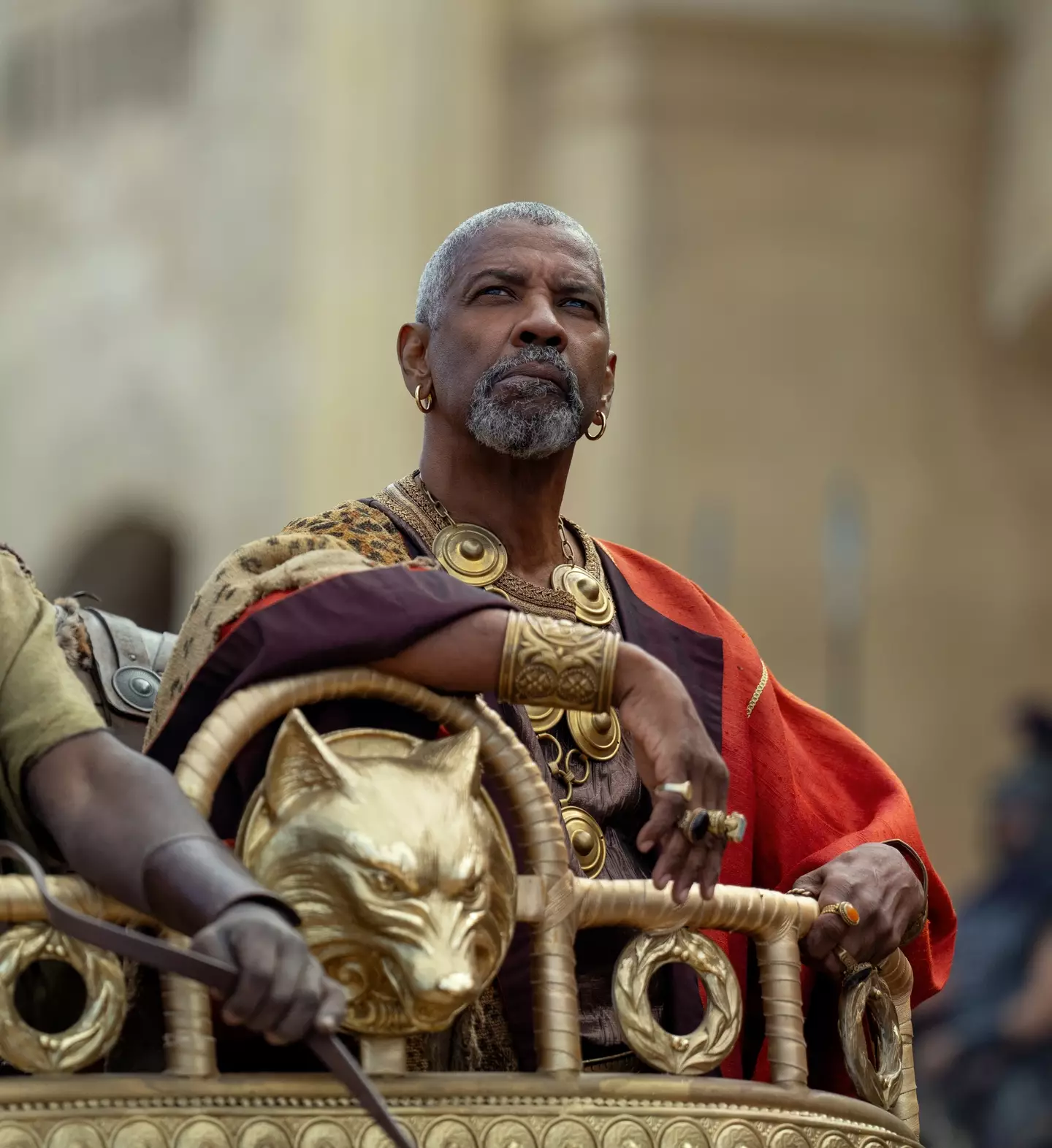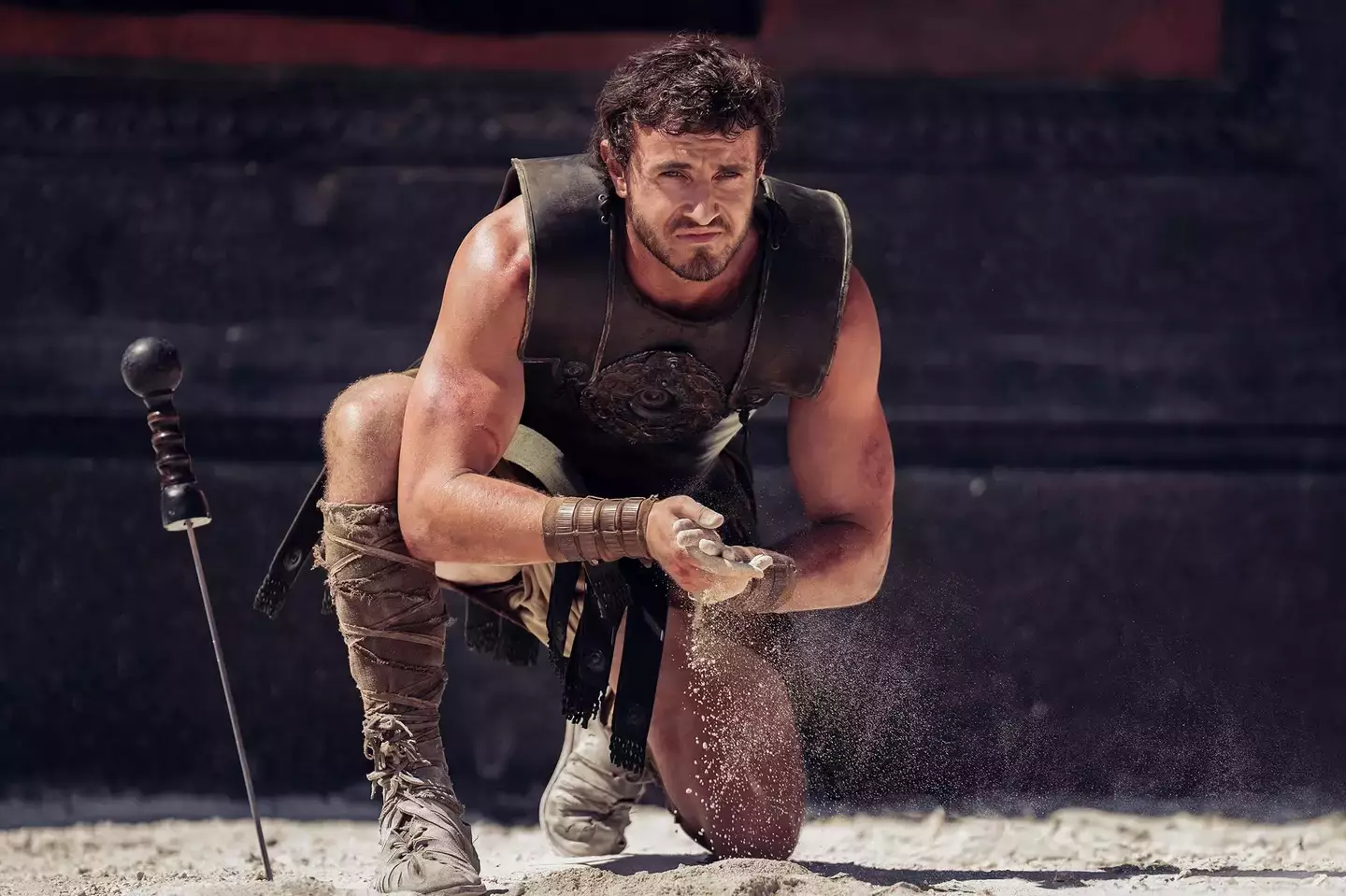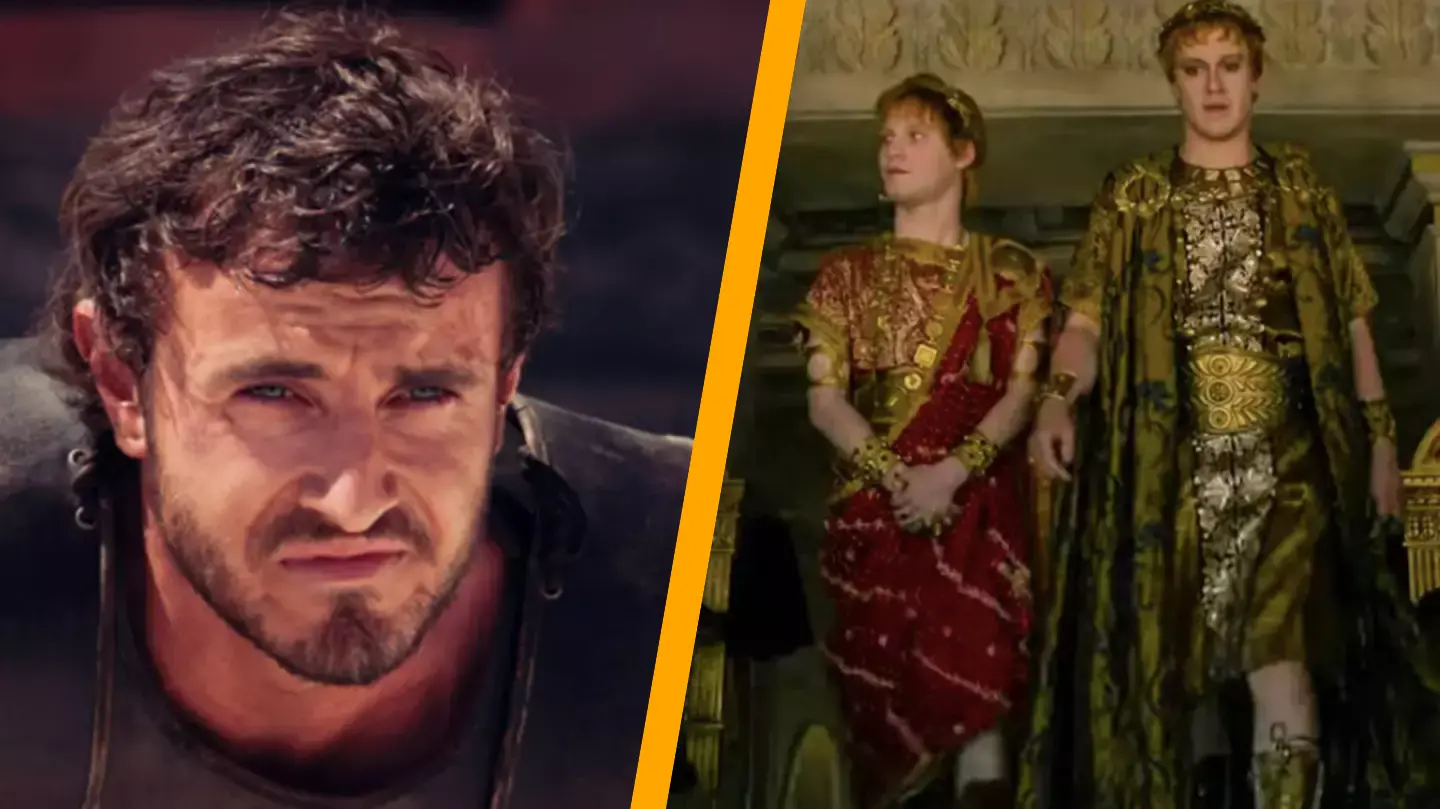The highly anticipated movie, Gladiator II, featuring Paul Mescal and Pedro Pascal, has made its debut in theaters both in the US and internationally. Critics have applauded Ridley Scott’s return to the epic swords and sandals genre.
Despite the praise, a historian has offered a critical assessment of this new film, which serves as a continuation of the 2000 film Gladiator, starring Russell Crowe and Joaquin Phoenix.
Dr. Shadi Bartsch, a classics professor at the University of Chicago, criticized the Oscar-winning director’s portrayal of Roman life, calling it “total Hollywood bull***t.”
A particular scene that caused controversy involves a Roman sipping tea at a cafe while reading a newspaper. However, the earliest documented news sheet was published in 1566 in Venice, Italy, which is approximately 1,355 years after the film’s setting in 211 AD.
In an interview with The Hollywood Reporter, Bartsch explained, “They did have daily news — Acta Diuma — but it was carved and placed at certain locations.”
“You had to go to it, you couldn’t hold it at a cafe. Also, they didn’t have cafes!” she added.
This raises the question of the historical accuracy of Gladiator II.
Beware, there are significant spoilers for Gladiator II ahead:
The characters of Emperors Geta (played by Joseph Quinn) and Caracalla (played by Fred Hechinger) are based on genuine Roman Emperors who ruled during the early 3rd century. Although depicted as twins in the film, they were not twins in reality.
Caracalla, the older brother, did indeed kill Geta, as shown in the movie, due to growing mistrust. Caracalla himself was eventually assassinated, likely at the behest of Macrinus, who is portrayed by Denzel Washington in the film.

The characters Lucilla and Lucius were indeed mother and son in real history, although the real Lucius died at a young age.
This renders his entire storyline in Gladiator (where Spencer Treat Clark played him) and Gladiator II (with Mescal) fictional.
Additionally, Lucilla died before Commodus (played by Phoenix) in reality. She was killed by the Emperor’s men after a botched assassination plot.
Macrinus, a real historical figure, became emperor after Caracalla’s death. He ruled for just over a year, known as the first Emperor who never set foot in Rome.
In Gladiator II, Macrinus’s reign is brief and ends when Lucius kills him.
This storyline takes inspiration from history but is modified. The Roman Emperor Caligula reportedly wanted to make his horse, Incitatus, a consul.
Consuls held the second highest position after the Emperor.
Some historical accounts suggest this never happened, arguing the story is based on myths and stories.
Nevertheless, it inspired a scene in Gladiator II where Emperor Caracalla grants his pet monkey, Dondas, consul powers.
While historical records vary, some indicate that the Colosseum was once filled with water for naval re-enactments, or naumachia, similar to what’s depicted in the film.
In an interview with Time Out, gladiator expert Alexander Mariotti mentioned that baboons and rhinos were likely involved, though gladiators did not ride rhinos.
No sharks were present in the Colosseum either.

The battle scene where Lucius’ home in Numidia is attacked by the Roman Army did happen but it occurred earlier than shown in the film.
This event took place during the Jugurthine War, between 112 BC and 106 BC, which is nearly three centuries before the events of Gladiator II.
The character of a former gladiator who becomes a doctor was crafted for the movie, yet his role as a gladiator caretaker is true to Roman history.
Doctors were tasked with treating gladiators and preparing them for future battles.
The comedian and actor obviously did not exist in ancient Rome, but his appearances raise the question of whether a Master of Ceremonies was a real position.
Records indicate such a role existed to guide guests, though the extent of its use is uncertain.
Marcus, portrayed by Pedro Pascal, has a vision of Rome that is a major theme of the sequel. It explores the concept of Rome transitioning back to a democratic republic rather than continuing under Imperial rule.
This is largely fictional. Hence, most of Gladiator II’s narrative is a work of fiction. Given Lucius’s early death, his storyline in the sequel is crafted to captivate audiences.

